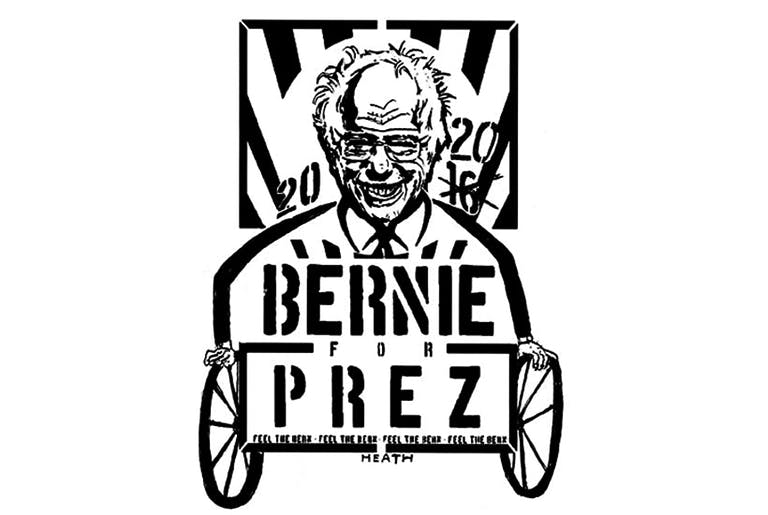Bernie Sanders’s presidential campaign looked listless back in October. Sure, the Vermont senator and 2016 Democratic party runner-up still had his most fervent supporters coming to his rallies and listening to him rail about millionaires, billionaires and greedy health insurance companies. But the polls suggested the wind was hitting his face; one survey put Sanders in a distant third place.
But now times have changed and Bernie is back. Could he beat Trump? Three months after a heart attack, Sanders finds himself ascendant. The normally grouchy 78-year-old has become less stiff and more personable. He’s more comfortable acting like a politician, whether it’s posing for pictures with voters, shuffling on the dancefloor for the cameras or connecting with Americans in more intimate settings. His field organization and committed support base have catapulted Sanders to first place in the first-in-the-nation Iowa caucuses. Massachusetts senator Elizabeth Warren’s recent troubles haven’t hurt either.
All of this is making more moderate and establishment Democrats nervous. Some are beside themselves at the prospect of Sanders representing their party. Still more are worried about the potential political consequences for the party in a such a crucial election year.
In the last week, Bernie’s detractors have been coming out in droves. Democratic lawmakers in Donald Trump-friendly congressional districts are pleading for voters to pick a more middle-of-the-road centrist in case Sanders’s democratic socialist leanings result in a GOP wave in November.
Others, including former advisers to 2016 Democratic nominee Hillary Clinton, want Sanders to start acting like a loyal Democrat rather than trying to divide the party en route to the nomination. Many of the aides now piping up are still simmering with anger over what they consider Sanders’s less-than-full support to Clinton in her quest to win the White House.
Former president Barack Obama, still the most popular Democrat in the country, hasn’t weighed in on the primary scuffle. Nor is he expected to weigh in until the nominee is crowned. But that hasn’t stopped his former campaign staff and political advisers from giving interviews about Sanders’s weaknesses as a general election candidate.
Jim Messina, the campaign manager for Obama’s re-election, called a Sanders candidacy the best possible scenario for Trump. ‘If I were a campaign manager for Donald Trump and I look at the field, I would very much want to run against Bernie Sanders,’ Messina told Politico. ‘From a general election perspective, socialism is not going to be what Democrats are going to want to defend.’
Messina’s reference to socialism, of course, is aimed at the senator’s platform of high taxes on the wealthy, free public college tuition, free healthcare and a massive wealth tax on Wall Street. It’s an agenda many Americans in their 20s and 30s — saddled with student debt, ridiculous costs of living and multiple jobs — appreciate and support. One of the appeals of Sanders is that he brought all of the issues out into the open and faulted the elites for perpetuating an unfair system that leaves most of the country struggling on a daily basis.
But the 2020 election won’t be won or lost on the backs of young Americans, many of whom wouldn’t dream of voting for a Republican anyway. It will be decided in states like Michigan, Pennsylvania, Wisconsin, North Carolina and of course Florida, where non-college-educated, blue-collar Americans reside and where the word ‘socialism’ still connotes terror and fear in the mind. Trump would use the socialism label to its fullest effect (in fact, he has already been using it for months), capitalizing on the nation’s partisan polarization to drive these unsure voters into his arms yet again.
Much like unmotivated Democratic voters in swing-state cities were the death of Hillary Clinton’s presidential aspirations, scared blue-collar voters running to the polls to block a perceived socialist from taking over the executive branch could keep the Democratic party out of the White House for another four years. Justified or not, this is the nightmare keeping the moderate wing of the party awake.
This article was originally published on The Spectator’s UK website.



















